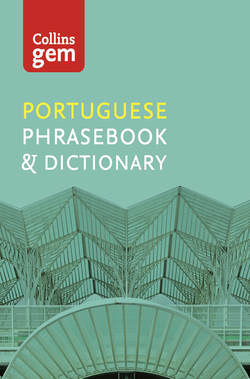Читать книгу Collins Gem - Collins Dictionaries - Страница 10
ОглавлениеHello/goodbye, yes/no
You will find that Portuguese people are quite formal and will appreciate it if you take the same approach to them as they take towards you.
| Please | Por favor/Faz favor poor fuh-vor/fash fuh-vor |
| Thank you | Obrigado(a) oh-breegah-doo(-duh) |
| Thanks very much | Muito obrigado(a)mweeñto oh-breegah-doo(-duh) |
| You’re welcome! | De nada! duh nah-duh! |
| Yes | Sim seeñ |
| No | Não nowñ |
| OK | Está bem shta bayñ |
| Sir/Mr | Senhor/Sr. sun-yor |
| Madam/Mrs/Ms | Senhora/Sra. sun-yoruh |
| Miss | Menina muh-neenuh |
| Hello/Hi | Olá oh-lah |
| Goodbye/Bye | Adeus aday-oosh |
| See you later | Até logouh-te logoo |
| See you tomorrow | Até amanhã uh-te amun-yañ |
| Good morning | Bom dia boñ dee-uh |
| Good afternoon/evening | Boa tarde boh-uh tard |
| Goodnight | Boa noite boh-uh noyt |
| Excuse me! (to catch attention) | Por favor! poor fuh-vor! |
| Sorry! | Desculpe! |
| dushkoolp! | |
| How are you? | Como está? koh-moo shta? |
| Fine, thanks | Bem, obrigado(a) bayñ, oh-breegah-doo(-duh) |
| And you? | E você? ee voh-say? |
| I don’t understand | Não compreendo nowñ koñpree-endoo |
| Do you speak English? | Fala inglês?fah-luh eeñglaysh? |
